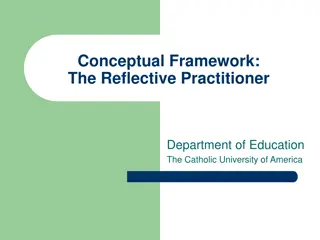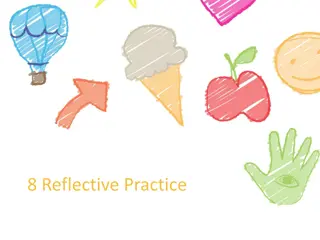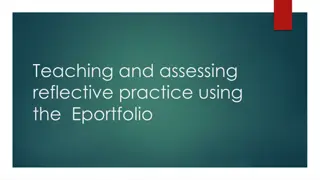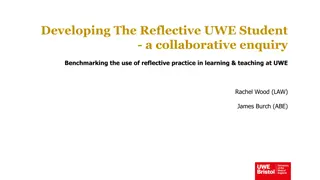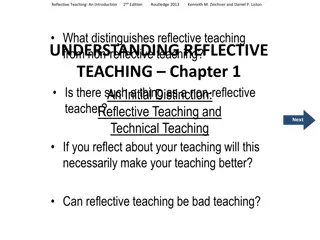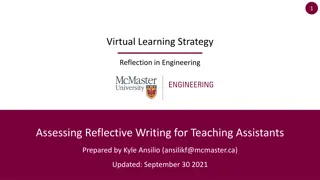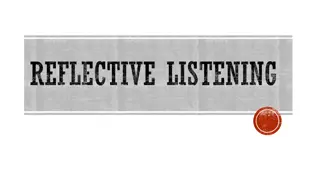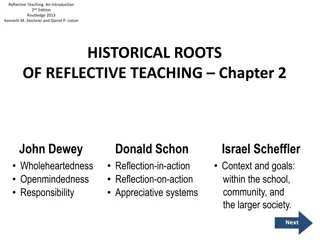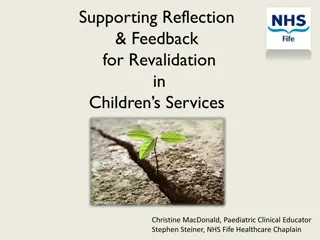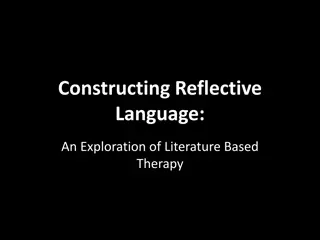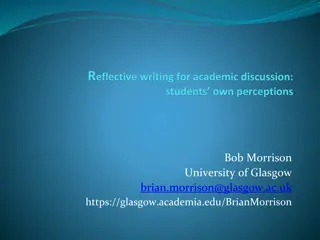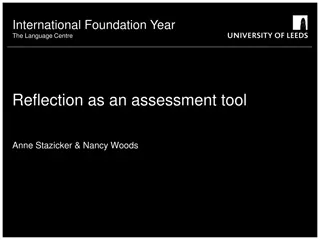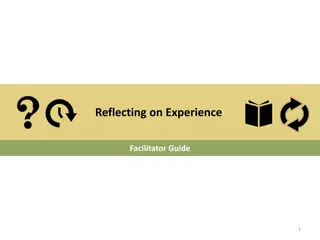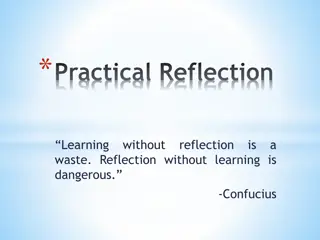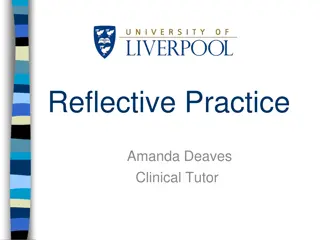Enhancing Reflective Practice: Understanding, Application, and Importance
Explore the concept of reflection through Johns' perspective, understanding its levels, benefits, and challenges. Discover how reflective practice empowers practitioners to enhance learning, development, and patient care quality. Identify blockers to reflection and strategies to overcome them.
Download Presentation

Please find below an Image/Link to download the presentation.
The content on the website is provided AS IS for your information and personal use only. It may not be sold, licensed, or shared on other websites without obtaining consent from the author.If you encounter any issues during the download, it is possible that the publisher has removed the file from their server.
You are allowed to download the files provided on this website for personal or commercial use, subject to the condition that they are used lawfully. All files are the property of their respective owners.
The content on the website is provided AS IS for your information and personal use only. It may not be sold, licensed, or shared on other websites without obtaining consent from the author.
E N D
Presentation Transcript
Intended Learning Outcomes To gain a deeper understanding of what we mean by reflection and the reflective learning cycle. To apply that understanding to reflective writing.
Definition Johns Reflection is a personal process which enables the practitioner to assess, understand and learn through their experiences. This results in some change for the individual in their perspective of a situation or creates new learning for the individual.
So what does that actually mean? Take a couple of minutes to talk in pairs about what you take this to mean for you in your practice. We will feed a few ideas back to the group
Levels of Reflection 4 Areas: 1 information; enough to paint a picture of the events 2 self awareness; open and honest about what occurred 3 critical analysis; looking at the bigger picture and then analysing the smaller parts to understand the whole 4 evidence of learning; synthesis, judgment and evaluation
Why bother? Why being a reflective practitioner is important Reflection empowers us to: demonstrate insight by identifying actions to help learning, development or improvement of practice, developing greater insight and self-awareness identify opportunities to improve quality and patient safety in organisations. There is a strong public interest in medical practitioners being able to reflect in an open and honest way. All medics are required to demonstrate reflective practice- undergrad/postgrad and via appraisal
What Stops Us Reflecting? Take a moment to think about what stops you reflecting on events
Blockers Procrastination Too busy/other priorities Challenging/uncomfortable/upsetting Concerns about writing things that show you in a less than perfect light Concerns about litigation/GMC ix Don t understand the reasons why it s important
Tips Reflection can be on both positive and negative experiences With difficult or emotive situations- write the jist of the events but then complete the reflection after you have had a bit of time to recover Avoid long detailed narrative (this is not necessary as it s the learning that is more important and can lead to patients being identifiable) Focus on why you have chosen the case- what feelings does it raise in you? Why have you remembered the events? Try to step back and look at what happened- break down the good and the bad elements of the situation This will help you to formulate some ideas about what you understand about the events Try to look at what might have been done differently




